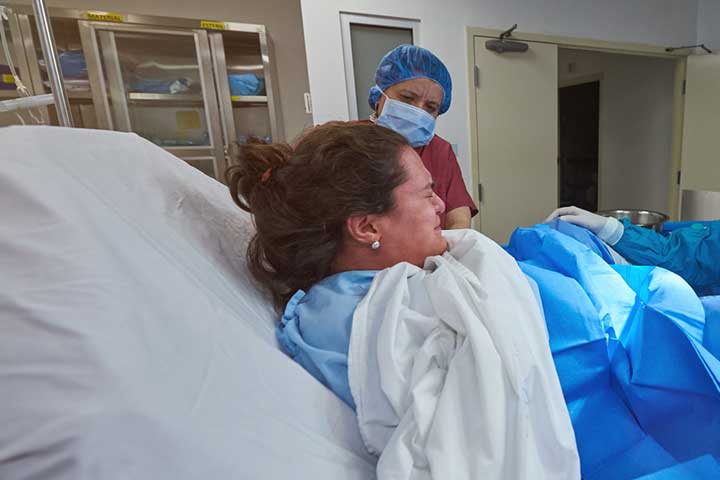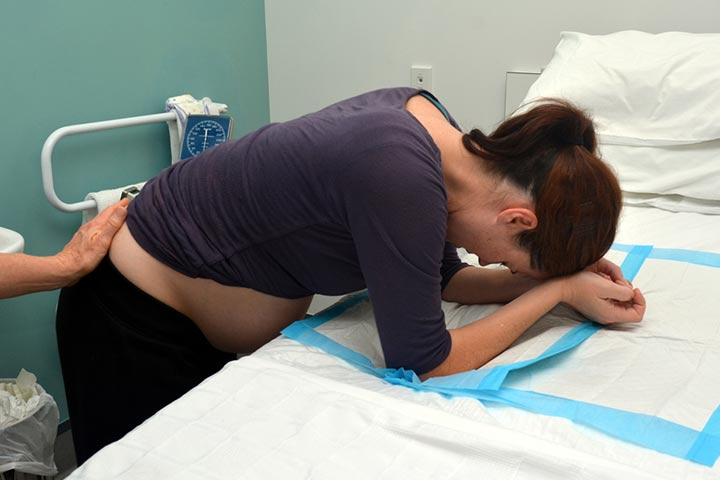
Image: Shutterstock
Pregnancy is one of the most beautiful phases in a woman’s life. Or at least it was in my case. While some women dealt with terrible morning sickness, acne, and backache, I was one of those women who actually loved every day of being pregnant. I had a relatively smooth journey from the very beginning. I got pregnant within 2 months of trying, and I had the much-hyped pregnancy glow. My skin never looked better and I never had a bad hair day all through the pregnancy. I enjoyed the pampering, the attention, and the love and care I received from my husband and family.
Since everything was going according to plan or even better, I never worried about labor and childbirth. See, I had a plan. I would wait for my contractions to begin, get an epidural, push for some time,—and voila!—have my little one in my arms. But no one told me that sometimes epidurals don’t work. The doctor, anesthesiologist, or the nurses at the hospital didn’t care to mention it. And though I had read about a few side effects, I didn’t read anything about it not working.
Image: Shutterstock
My pregnancy was a breeze. But to make up for it, my labor was as complicated as it can be. My daughter was in the posterior position instead of face down. This meant I was in for an incredibly painful childbirth experience. I could feel every contraction piercing through my body and even the post-birth stitches that I had hoped I wouldn’t have to worry about were painful.
I recall asking the doctor if I had received the epidural because I could feel every contraction ripping through my body. At one point, I was in so much pain that I wasn’t able to talk and could only make primal noises as a reaction to the pain. And since I had planned on a pain-free birth via epidural, I didn’t research any other options for managing labor pain. So all I could do now was what came naturally i.e., scream, push, and swear.
To my surprise, I came to know that mine wasn’t a rare occurrence. Sometimes they just don’t work. Research shows that epidurals are not effective 12% of the time (1). There are several reasons behind this failure. It could be due to the wrong placement of the epidural, the anatomy of the mother’s central nervous system, or because labor progressed more quickly than one anticipated.
Image: Shutterstock
And moms who are unaware of these facts usually do not have a backup plan since epidural is considered to be the gold standard for pain management. But now that we have learned that epidurals aren’t as foolproof, it’s good to research other pain-coping strategies if your main plan falls through. You could do hydrotherapy, massage, join Lamaze classes, use a birth ball, or try different positions and movements. Or even hire a doula to help you assist during labor.
After 12 hours of pushing and screaming, I finally gave birth to my daughter. She weighed 8 pounds and looked healthy with big beautiful eyes. Though it wasn’t how I had planned, I was still able to have a normal delivery.
Image: Shutterstock
As mothers, we always hesitate talking about how difficult our labor was if we gave birth to a healthy child. We want to be martyrs and believe that “Ehh, what’s a bit of trauma and pain for a healthy baby?” We are supposed to soldier on. But let me tell you, it wasn’t easy. And if I could go back in time, I would definitely do more research on other pain management techniques. And maybe you should too.















